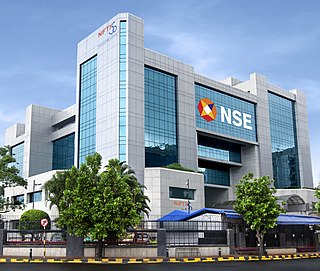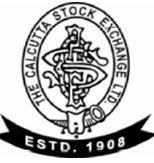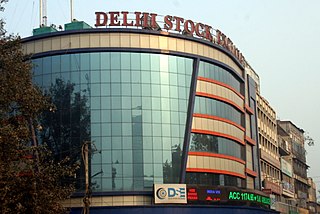History
MPSEL was originally set up as an association in 1919, with around 150 broking members. It was granted permanent recognition under the provisions of the Securities Contract (Regulation) Act, 1956 ("SCRA"), by the Government of India in 1988. MPSEL currently has 185 broker members, including some of the leading brokering houses in India. Around 315 companies, including some of the leading corporates of the country are listed on MPSEL.
After joining hands with National Stock Exchange (NSE) in 2012 and with the Bombay Stock Exchange (BSE) in 2013, MPSE became the only regional stock exchange in India to provide independent trading platform for its members. [1]
MPSE was the first regional exchange to enter into agreement with both the stock exchanges and first in India to get SEBI's approval when it allowed regional exchanges to come out of hibernation. Prior to this trading at the MPSE was allowed through its subsidiary.
In 2014, SEBI asked MPSE to create its own trading platform with a net worth of ₹ 100 crore or be de-recognized. [2] SEBI de-recognized MPSE in 2015. [3]

The Securities and Exchange Board of India (SEBI) is the regulatory body for securities and commodity market in India under the administrative domain of Ministry of Finance within the Government of India. It was established on 12 April 1988 as an executive body and was given statutory powers on 30 January 1992 through the SEBI Act, 1992.

BSE Limited, also known as the Bombay Stock Exchange (BSE), is an Indian stock exchange which is located on Dalal Street. Established in 1875 by cotton merchant Premchand Roychand, it is the oldest stock exchange in Asia, and also the tenth oldest in the world. The BSE is the world's 6th largest stock exchange with a market capitalization exceeding US$5 trillion on May 21, 2024.

National Stock Exchange of India Limited (NSE) is one of the leading stock exchanges in India, based in Mumbai. NSE is under the ownership of various financial institutions such as banks and insurance companies. It is the world's largest derivatives exchange by number of contracts traded and the third largest in cash equities by number of trades for the calendar year 2022. It is the 7th largest stock exchange in the world by total market capitalization, exceeding $5 trillion on May 23, 2024. NSE's flagship index, the NIFTY 50, is a 50 stock index that is used extensively by investors in India and around the world as a barometer of the Indian capital market. The NIFTY 50 index was launched in 1996 by NSE.
The Madras Stock Exchange (MSE) was a stock exchange in Chennai, India. The now defunct MSE was the fourth stock exchange to be established in the country and the first in South India. It had a turnover (2001) of ₹ 3,090 crore, but was a fraction of the turnover generated by the Bombay Stock Exchange and National Stock Exchange of India. The turnover of the stock exchange was 19,907 Crore as of the financial year 2012.
Ludhiana Stock Exchange (LSE) is a defunct stock exchange that was fully owned by Government of India. It was established in the year 1983. By 1999-2000, the exchange had a total of 285brokers, out of which 79 were corporate brokers. Among 284 brokers, it was further classified as 212 proprietor broker, 2 partnership broker and 70 corporate broker. Then, there was only 2 sub-brokers registered.

Inter-connected Stock Exchange Ltd. (ISE) is an Indian national-level stock exchange. under the ownership of Ministry of Finance, Government of India. It is responsible for providing trading, clearing, settlement, risk management and surveillance support to its trading members. It started its operation in 1998 in Vashi, Mumbai, and has 841 trading members, who are located in 18 cities. These intermediaries are administratively supported through the regional offices at Delhi, Kolkata, Patna, Ahmedabad, Coimbatore and Nagpur, besides Mumbai.

Calcutta Stock Exchange (CSE) is an Indian stock exchange based in Kolkata, India. It is owned by Ministry of Finance, Government of India. It is one of oldest stock exchanges in Asia and third largest bourse in India. It was founded in May 1908 at 2, China Bazar Street.
Cochin Stock Exchange was an Indian stock exchange in Kochi, Kerala fully owned by Government of India. It was incorporated in 1978. At its peak, it had almost 500 Indian companies listed, and with a daily turnover of ₹70–₹100 crore, it was the fourth largest exchange in India.

The Ahmedabad Stock Exchange (ASE) is the second oldest exchange of India located in the city of Ahmedabad in the Western part of the country and is fully owned by Government of India. It is recognised by Securities Contract (Regulations) Act, 1956 as permanent stock exchange. Its logo consists of the Swastika, which is one of the most auspicious symbols of Hinduism depicting wealth and prosperity.
Hyderabad Stock Exchange (HSE) was a stock exchange established in 1941 located in Hyderabad, India. The exchange was disbanded in 2007 by SEBI and since January 2013, HSE was conditionally permitted to function as regular broking or corporate entity.

Delhi Stock Exchange (DSE) was a stock exchange located in New Delhi.
Guwahati Stock Exchange (GSE) was a stock exchange located in Gauhati, Assam.
Saurashtra Kutch Stock Exchange Limited, popularly called Stock Exchange, or SKSE) is one of three Indian stock exchange in Gujarat. It is located at Sadar Bazaar, Rajkot, India. Saurashtra Kutch Stock Exchange Ltd was incorporated in July 1989 and got recognition from the Government of India. The recognition have been renewed from time to time by the Central Government and SEBI. It is under the ownership of Ministry of Finance of the Government of India.
Commodity trading in India has a long history. In fact, commodity trading in India started much before it started in many other countries. However, years of foreign rule, droughts and periods of scarcity and government policies caused the commodity trading in India to diminish.
List of Indian stock exchange may refer to one of the 7 official operating stock and commodity exchanges by SEBI or the numerous defunct ones.
Magadh Stock Exchange Association Ltd (MSEA) is located in Patna, India. It was established in the year 1986. It is one among the 25 odd regional stock exchanges in India. The exchange was disbanded on 3 September 2007 by Securities and Exchange Board of India (SEBI).

Motilal Oswal Financial Services Limited is an Indian financial services company offering a range of financial products and services. The company was founded by Motilal Oswal and Raamdeo Agrawal in 1987.
Religare Enterprises Limited (REL) is an Indian investment and financial services holding company, headquartered in New Delhi. REL is listed on National Stock Exchange of India and Bombay Stock Exchange. It is registered with the Reserve Bank of India (RBI).

Metropolitan Stock Exchange of India Limited (MSE) is a stock exchange regulated by Securities and Exchange Board of India (SEBI). The Exchange was notified of a "recognized stock exchange" under Section 2(39) of the Companies Act, 1956 by the Ministry of Corporate Affairs, Govt. of India, on December 21, 2012. The exchange's shareholders are some of India's top public sector banks, private sector banks, and domestic financial institutions.
The NSE co-location scam relates to the market manipulation at the National Stock Exchange of India, India's leading stock exchange. Allegedly select players obtained market price information ahead of the rest of the market, enabling them to front run the rest of the market, possibly breaching the NSE's purpose of demutualisation exchange governance and its robust transparency-based mechanism. The alleged connivance of insiders by rigging NSE's algo-trading and use of co-located servers ensured substantial profits to a set of brokers. This widespread market fraud came to light when markets' regulator, the Securities and Exchange Board of India (SEBI), received the first anonymous complaint through a whistle-blower's letter in January 2015. The whistle-blower alleged that trading members were able to capitalise on advance knowledge by colluding with some exchange officials. The overall default amount through NSE's high-frequency trading (HFT) is estimated to be ₹500 billion over five years.








